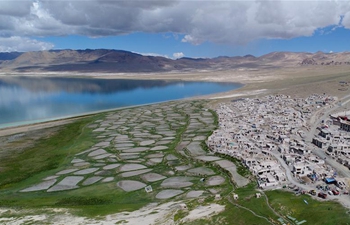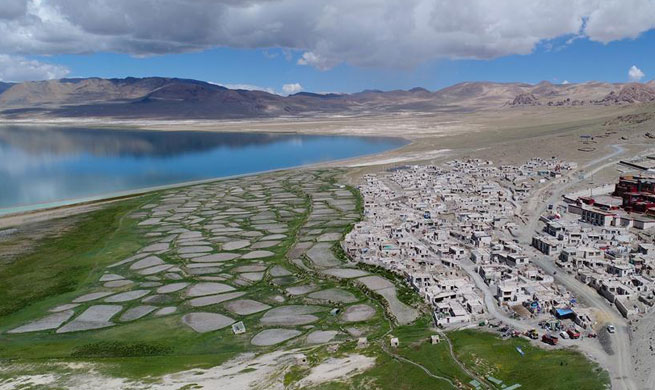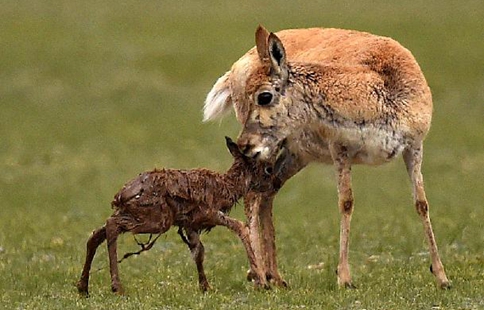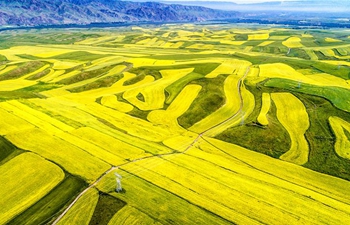by Evan Duggan
VANCOUVER, July 11 (Xinhua) -- The town of Williams Lake in British Columbia's Cariboo region was put on evacuation alert Tuesday as wildfires burned across the heart of the Western Canadian province, Canada's public broadcaster CBC reported.
Residents were instructed to gather their belongings and make arrangements to leave at a moment's notice, said the broadcaster.
Williams Lake is the largest city so far under threat from fires that mostly started on Friday during a lightning storm that sparked fires in the tinder dry forests.
No deaths were reported, but more than 10,000 residents had been forced from their homes by Tuesday morning as roughly 220 wildfires scorched tinder dry forests with about 17 of the blazes abutting several villages, towns and cities in the British Columbia (B.C.) Interior.
The B.C. government has enacted a province-wide state of emergency.
This wildfire season has surprised many, after ample snowfall this past winter and a very wet spring suggested that a mild forest fire season was in store, said Lori Daniels, a forest and conservation sciences professor with the University of British Columbia.
"We're going on two weeks now of this high-pressure system, with lots of sunshine and warm temperatures, but with that comes this drying trend," she told Xinhua in an interview on Tuesday.
It used to be rare for the entire province to face such extreme wild fire threats this early in the summer, she said. "But since 2010, we've seen this multiple times. That's disconcerting to me," she added.
On Sunday, residents of the small town of 100 Mile House were given an evacuation order as forest fires swept close to the village of about 1,800 people. 100 Mile House is located about 70 km south of Williams Lake.
Several other separate evacuation orders and alerts are now in effect throughout the central and southern interior of the mountainous province carpeted by forests that have become extremely combustible after weeks of hot, dry and windy weather.
About 1,000 firefighters from B.C. have been fighting the fires, Canadian newspaper The Globe and Mail reported. Some another 300 firefighters have started to arrive from elsewhere in Canada to assist the B.C. crews.
One wild fire destroyed about 30 homes and two airport hangars near the town of Cache Creek 354 km northeast of Vancouver. That fire also burned down several buildings and homes on the Ashcroft Indian Band reserve. Another 30 homes were burned to the ground in a fire at the small nearby community of Boston Flats.
The full extent of the damage is not yet known in many of the major fire zones.
Multiple highway routes around B.C. have been shut due to the fires, complicating and extending evacuation routes amid the turmoil.
"The majority of the fires that are burning with such intensity are in and around the Williams Lake area and up in the Cariboo; those were lightning strikes that happened on Friday afternoon during a dry lightning storm," Daniels said.
More than 100 fires erupted that day. "That's our worst-case scenario," she said, adding: "It was very windy at the time, so those lightning strikes became forest fires very rapidly."
One of the reasons wild fires seem to be getting worse in B.C. is that fire crews have become so efficient at extinguishing the blazes over the past years, Daniels said.
"We put out all fires, including low-intensity fires that would have burned off fuels," she explained. "They have been suppressed for so many decades and now that we have built up those fuels."
As crews continue to battle the fires across the province, mother nature doesn't appear to be offering any help, with another week-to-ten-day of hot, dry weather expected through much of the B.C. Interior, the coastal areas and the southern section of the province.

















